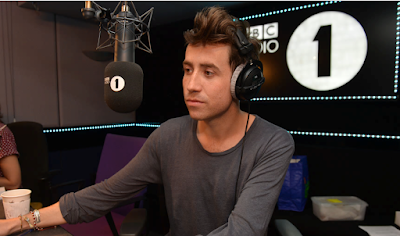- Immediacy: has it happened recently?
- Familiarity: is it culturally close to us in Britain?
- Amplitude: is it a big event or one which involves large numbers of people?
- Frequency: does the event happen fairly regularly?
- Unambiguity: is it clear and definite?
- Predictability: did we expect it to happen?
- Surprise: is it a rare or unexpected event?
- Continuity: has this story already been defined as news?
- Elite nations and people: which country has the event happened in? Does the story concern well-known people?
- Negativity: is it bad news?
- Balance: the story may be selected to balance other news, such as a human survival story to balance a number of stories concerning death.
1) Read Media Factsheet 76: News Values and complete the following questions/tasks.
2) Come up with a news story from the last 12 months for each of the categories suggested by Harriss, Leiter and Johnson:
- Conflict - Trump believes Putin on Russia meddling, but then backs US agencies
- Progress - Parliament to get binding vote on final Brexit deal
- Disaster - Iran-Iraq earthquake death toll climbs to more than 400
- Consequence - Yellow Pages to stop printing from January 2019
- Prominence - George Takei denies sexually assaulting model in 1981
- Novelty - Meet the millennials who are making a living from livestreaming
3) What example news story does the Factsheet use to illustrate Galtung and Ruge's News Values? Why is it an appropriate example of a news story likely to gain prominent coverage
- The
factsheet used a news story 'British servicewoman dies after afghan bomb blast'
This is an appropriate news story because it includes proximity as it includes
'British' and then it has intensity as it is a female officer and it is also
more unusual. The war in Afghanistan is on-going which involved the news value
continuity and these events are not predictable and the facts are clear
(clarity). Therefore it is appropriate as it ticks most of the news value boxes
which means it will gain prominent coverage
4) What is gatekeeping?
- Gatekeeping is the process through which information is filtered for dissemination, whether for publication, broadcasting, the Internet, or some other mode of communication. Individuals can also act as gatekeepers, deciding what information to include in an email or in a blog.
5) What are the six ways bias can be created in news?
- bias is created though:
- selection and omission - whether or not to use a specific story and choosingnot to feature some information
- placement - stories on front page is considered more important than ones on the later pages
- headline - can be misleading in the emotions it is meant to portray
- photos, captions, and camera angles - can make person look bad or good, influences the publics perception of a person or an event.
- use of names and titles - labels and titles to describe events.
- choice of words - influenced by positive or negative words with connotations.
6) How have online sources such as Twitter, bloggers or Wikileaks changed the way news is selected and published?
- online sources such as twitter, bloggers or Wikileaks have changed the way news is selected or published as it can be used to help news outlets select the news that they want to focus on as there has been numerous evidence that have been sourced through twitter.
7) Give an example of a news story from the last WEEK that was reported as a result of online technology - Twitter, Wikileaks or similar.
-
8) Complete the task on the last page of the Factsheet regarding Sky News and Twitter:
- What does this reveal about how Sky views Twitter as a news source? - Since the images came from them first it is used as an authentic source where they have
- What does it say about how news is being produced? - That it is changing in the sense that it is using more UGC
- What role does the audience have in this process? - The audience have a role in this process as they become an important part of the process. This is because they are the ones most likely to provide the evidence through citizen journalism.
- Why might this be a problem for journalistic standards? - This might be a problem for journalistic standards as it doesn't provide a full clear evidence of the story and it may be one sided and therefore it is unclear whether they are giving out the best information they possibly can.
Final tasks
9) In your opinion, how has new and digital media technology changed Galtung and Ruge’s news values?
- New and digital news has changed news values in the sense that it can be a way to bypass the process as things like blogs don't need to consider or think about what they post to an extent in the sense that the amount of people that view authentic news sources do not view the niche blogs.
10) How would you update them for 2016? Choose SIX of Galtung and Ruge's news values and say how each one has been affected by the growth of new and digital technology.
Immediacy: this has been affected in the sense that news is becoming even more immediate and quick to access. Through sources like online social media. We can access news with a click of a button or through an app.
Amplitude: Events are now much more larger than they may seem as people form around the world are more likely to see it which allows a larger audience to give their opinion through different platforms.
Unambiguity: there is less ambiguity as there is an increase in UGC as you are able to see what happens in the events that are being broadcasted and not completely relying on what the journalist are saying after the events have taken place.
Surprise: When news is rare then there is more of a buzz and this is affected by new and digital media as social media platforms like twitter will generate awareness to that event by using hashtags.
Continuity: It is much more easier for us to keep up to date with news that we have been following for a while. There are also an increase in continuity as audiences are more interested in knowing what happens next.
Negativity: There has been an increase in negative news which could be due to the fact that audiences are unsatisfied with what is going on around them and the world that it is shown through what is being broadcasted on the news.











